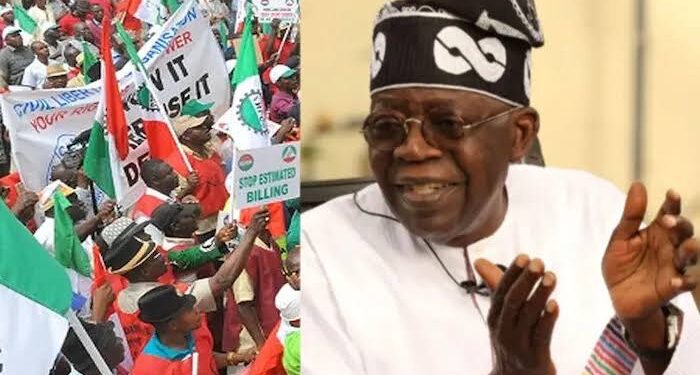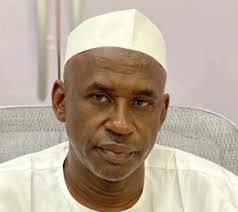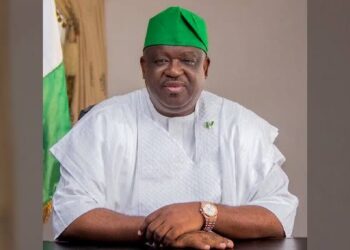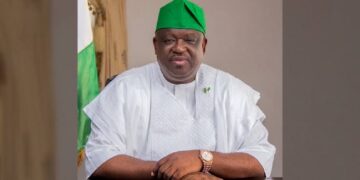Former Minister of Works, Babatunde Fashola asserted that workers in Nigeria merit justifiable modifications to adapt to the escalating cost of living in the country.
Fashola articulated this viewpoint in a publication titled ‘Minimum Wage Review – My Take Away’.
He expressed, “As the cost of living escalates as it is currently doing, individuals with the lowest and highest incomes are affected to differing extents and thus should receive justifiable adjustments, whether they are receiving wages or salaries.”
The former Governor of Lagos State criticized Section 4(1)(b) of the National Minimum Wage Act 2019, which excluded “an establishment employing less than 25 persons” from being obligated to comply with the Act’s provisions regarding minimum wage.
The former minister contended that the exemption of such establishments “casts considerable doubt on whether we have genuinely enacted a minimum wage Act, given that small businesses with fewer than 25 employees, who employ the largest number of the most vulnerable individuals, are exempt from the legislation as it is currently formulated. In such a scenario, who is the legislation truly safeguarding?”
Fashola, a Senior Advocate of Nigeria (SAN), emphasized that item 34 of the 1999 Constitution, as amended in the Exclusive Legislative list, empowers the National Assembly to stipulate a national minimum wage for the Federation, rather than a monthly salary.
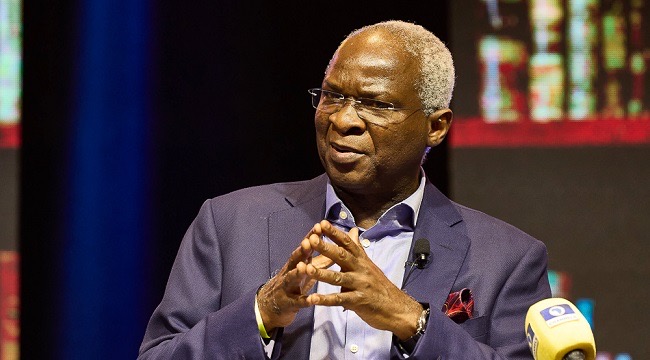
He explained that while wages and salaries are common forms of compensation provided by employers, the former denotes a fixed annual sum, payable on a weekly, bi-weekly, or monthly basis, subject to agreement. In contrast, the latter refers to remuneration based on an hourly rate and the number of hours an employee works.
“Consequently, it appears evident from this definition that by enacting a law in Section 3(1) of the Minimum Wage Act which specifies that the minimum wage of N30,000 shall be remitted monthly, the National Assembly may have acted in an unconstitutional manner by legislating on a SALARY (monthly payment) despite having the authority to legislate on WAGES, which pertain to hourly compensation.
“This distinction is crucial as discussions on the minimum wage persist in 2024 because according to Section 3(4), the minimum wage “shall be reviewed in accordance with the provisions of this Act,” which includes Section 3(1) that has stipulated a monthly amount instead of an hourly wage.”
“Indeed, if and when we, as a nation, opt to implement a suitable minimum wage, we must then devise a methodology to adjust the salaries of those who do not receive wages in order to aid them in grappling with the challenges posed by the cost of living.
“This could potentially yield the most fruitful resolution to the quandary of appropriate employee compensation, as it may establish the groundwork for national productivity, wealth generation, and prosperity. The opportunity at hand is too significant to be overlooked or squandered,” he stated.
The former governor urged experts in labor law and compensation matters to engage in brainstorming sessions and seek guidance from the preeminent institutions worldwide.
“As we embark on this endeavor, we must be cognizant of the necessity for a potential amendment to item 34 of the Exclusive list in the constitution to incorporate salaries, as it is currently not included.”
Following weeks of unsuccessful negotiations on a new minimum wage for workers in the nation, Organized Labor declared an indefinite industrial action on Monday, June 3, 2024. Economic activities came to a standstill as labor unions shut down airports, hospitals, the national grid, banks, the National Assembly, and state assemblies’ complexes.
The labor unions contended that the current minimum wage of ₦30,000 is no longer adequate to sustain the livelihood of an average Nigerian worker, asserting that the government should propose an economically feasible alternative in line with the prevailing inflationary pressures and the repercussions of the administration’s policies on petrol subsidy removal and the unification of forex windows.
The labor unions also deplored the fact that not all governors are adhering to the current wage award, which expired in April 2024, five years after the Minimum Wage Act of 2019 was signed into law by former President Muhammadu Buhari. The Act should be revised every five years to align with the contemporary economic requirements of workers.
In January 2024, President Bola Tinubu inaugurated a tripartite committee to negotiate a new minimum wage for the country.
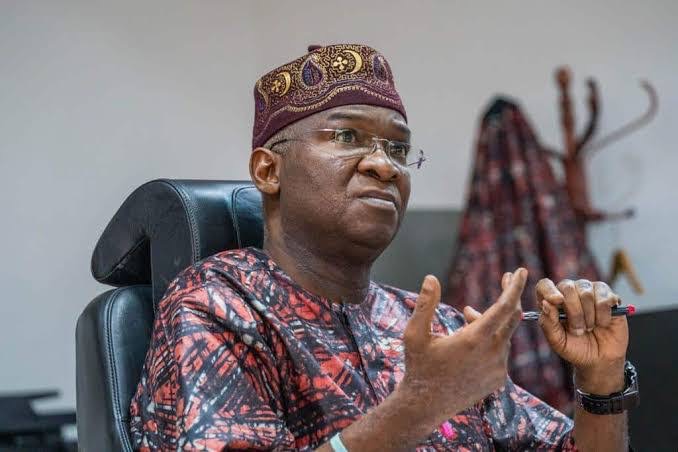
At the onset of the negotiations, Labor initially proposed ₦615,000 as the new minimum wage but subsequently adjusted their demand to ₦497,000, and further down to ₦494,000.
Conversely, the government and the Organized Private Sector initially suggested ₦48,000, ₦54,000, ₦57,000, and eventually ₦60,000, all of which were rebuffed by Labor, prompting the industrial action.
Amidst the impasse and the consequential effects of the strike on Monday, June 3, 2024, the Secretary to the Government of the Federation (SGF), George Akume, affirmed the President’s commitment to a wage exceeding ₦60,000 and announced that the government’s representatives in the tripartite committee would engage in discussions with labor for a week to reach a consensus on the wage.
The organized labor “suspended” its industrial action on Tuesday, June 4, 2024, approximately 24 hours after the commencement of the strike.
Subsequently, the leadership of the Trade Union Congress (TUC) and the Nigeria Labour Congress (NLC) resumed negotiations with the representatives of the Federal Government, states, and the Organized Private Sector.
The President also instructed the Minister of Finance, Wale Edun, to present a framework for a new minimum wage. Prior to this directive, the minister deemed labor’s demands as “unfeasible.”
The 36 state governors contended that labor demands were unsustainable, while local government administrations labeled the demands of the NLC and TUC as impractical.
However, on Friday, June 7, 2024, both parties (labor and the government) failed to reach a consensus. While labor reduced its demand from ₦494,000 to ₦250,000, the government augmented its initial ₦60,000 offer by ₦2,000 and proposed a wage of ₦62,000 for workers.
Both sides submitted their reports to the President, who is anticipated to reach a decision and forward an executive bill to the National Assembly for the enactment of a new minimum wage bill to be signed into law.
In his Democracy Day address on June 12, 2024, the President assured Organized Labor that an executive bill on the new national minimum wage for workers would be submitted to the National Assembly for approval.


